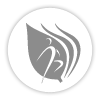The key to losing weight and meeting your goals is 1) nutrition and 2) physical activity. Getting adequate sleep will also impact your success. The key is burning more calories then you take in or eat. But, do not starve yourself. Do not limit your calories so drastically your body thinks it is starving and will hold onto every calorie/item you do eat. Adequate water intake will also help aid in weight loss (8-8oz glasses a day or 64oz. You may need to ingest more with increased physical activity or hot weather).
Nutrition: eating 3 smaller meals a day with 2 nutrition snacks are advised. The more frequently you eat helps keep fuel in your system and keep your metabolism “burning” so to speak. It is important to eat small amounts of protein at each meal and snack. Eating protein after your workouts is beneficial and preferable to eating it before workout. Protein helps you build muscle and muscle weighs more then fat but is also a more efficient calorie burner at rest. Do not skip meals and then eat an extra big meal to make up for the skipped meal. Good sources of protein are –turkey, chicken, fish, rice and beans complement one another to provide protein. Dairy such as milk, eggs, yogurt, cheese are also good sources. Lean red meat is ok occasionally. Peanut butter is also a source of protein but choose natural or organic forms such as Adams vs. Jif or Skippy which are processed. For women you want to get about 20-25 grams of protein at each meal and men 30 grams of protein. Choose whole grains such as whole wheat crackers, whole wheat bread, whole wheat pasta and/or brown rice versus their “white forms” as the “brown” provides increased fiber in your diet. Choose complex carbohydrates versus simple sugars (fresh fruits and vegetables versus candy bars and baked goods). Do not deprive yourself of an occasional treat (e.g. a few cookies, a handful of chips, a small serving of dessert). It is better to indulge yourself moderately than deprive yourself completely and then binge eat once you do allow the “treat.” One important component is planning your meals and snacks in advance so you do not end up “starving” yourself and/or eating “fast food.” For example you can prepare a large pot of pasta and chicken with vegetables thrown in and tupper ware out servings in advance. Snacks may include string cheese with whole wheat crackers, apple with peanut butter, cottage cheese with fruit or yogurt. Avoid sugary drinks and keep caffeine to a minimum.
You optimally want to get 8 hours/sleep a night.
Exercise: if you perform weights and cardiovascular, try to perform weights first to help deplete glycogen stores and start to burn fat so by the time you hit cardio, your body is burning fat for fuel. Cardiovascular exercise is recommended 5-6 x week for at least 30 minutes to get your heart rate up or break a sweat but not breathless to the point you cannot hold a conversation when talking. To help weight loss, improving muscle mass through weight training 2-3 x week working the bigger muscles first such as quadriceps, back, chest before smaller muscles as shoulders, calves, arms.
For more information on starting the right eating plan for your age and lifestyle please visit
